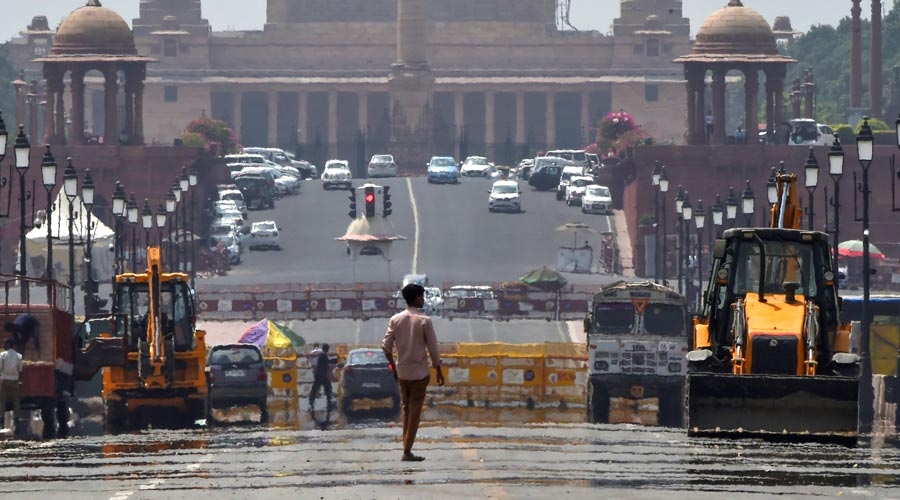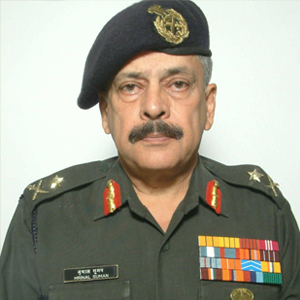Bureaucracy: the Root Cause of India’s Ills
To Indian bureaucrats, national interests or citizens welfare are of secondary importance. In most cases, their sole thrust is towards guarding their turf and the privileges
Total Views |

From the lofty days of being the steel frame of India, bureaucracy has degenerated into being the nation’s misfortune. Undoubtedly, the root cause of all the ills afflicting this country is India’s insensitive, self-serving and inefficient bureaucracy. Brazenly, but through well calculated maneuvers, bureaucrats have reduced India into their captive fiefdom with the sole objective of perpetuating their vice-like hold to safeguard their own interests.
Right since the training days, it is ingrained in their minds that they are the rulers. Question any bureaucrat, and he will retort by saying that ‘he is the government’. Commonly referred to as ‘one-exam wonders’, they suffer from acute inferiority complex with respect to the specialist cadres. Their demeanour of self-importance is, in fact, a façade to hide their acute sense of inadequacy and their arrogant behavior is symptomatic of this weakness.
A close observation of the Indian bureaucracy’s disposition reveals their affliction with the ‘split-personality syndrome’. It is a neurosis disorder in which the personality becomes dissociated into two or more distinct parts; each of which becomes dominant and controls behaviour from time to time to the exclusion of the other two parts. A modern name for this condition is ‘dissociative identity disorder’.
Indian bureaucracy suffers from triple split-personalities. Interestingly, change over from one personality to another is quick and effortless. Various personalities have been discussed below.
(a) The Arrogant Ruler
In his first and common avtaar, a bureaucrat dons the personality of a despotic ruler. While dealing with the public, his conduct becomes haughty, indifferent and slothful. His office resembles a mini durbar wherein the ‘lowly common man’ is treated with disdain and irrelevance. He lacks basic manners and etiquettes. Getting up to receive a visitor or offering a chair is considered below his dignity. He never greets anyone and responds with a condescending nod, if wished.
In this persona, he looks at the citizens as seekers of favours and considers himself to be the dispenser of largesse. As a result, he behaves in a pretentious, condescending, pompous and supercilious manner. Though euphemistically called a public servant, his deportment is that of a conceited and self-important sovereign. It is not rare to hear some bureaucrats declaring that they are the rulers.
(b) The Well-mannered Diplomat
Bureaucrats’ second personality manifests itself when they deal with the US and European leaders and officials. During interaction, they display immaculate manners (bordering on servility). They seek their goodwill and munificence for two reasons.
One, they want scholarships and green cards for their progeny. It will be highly revealing if the government picks up courage to make the complete data of all such ‘diplomatic gratifications’ public. Almost all senior bureaucrats manage to have their even mediocre offspring accommodated in foreign universities with liberal scholarships. In addition, they are granted citizenship as a favour.
Two, all bureaucrats crave for lucrative appointments under UNO, World Bank and other international organisations. They know that their candidature would need positive support from the developed nations. Therefore, they put their best foot forward, even going to the slavish extent of clasping and shaking a foreign dignitary’s hand with both hands. They become epitomes of humility and decorousness. Need for continued ‘good behaviour’ renders Indian diplomats incapable of taking up Indian issues forcefully.
Interestingly, their behaviour with the envoys from the lesser countries (African and Asian) is always official and formal, bordering on nonchalance. “Why humour them when they can do no favour to us” is the guiding principle. Unfortunately, the public does not get to see this facet of the bureaucrats’ personality.
(c) The Servile Yes-man
“The third, and by far the most anomalous personality of a bureaucrat is of the most servile and timid public servant (pun intended). It becomes visible when he interacts with the ministers. Even the most degrading treatment meted out to them by their political masters in some states is endured with inexplicable reticence, without a whimper.”
No bureaucrat ever opposes or questions his minister. During a social gathering, a senior bureaucrat was candid enough to admit, “I stay in my job as long as he is happy. Otherwise, I will be shunted to some innocuous job in some NE state. Who wants to risk it? Therefore, during meetings, I keep looking at the facial expression of my minister for clues and tailor my response accordingly”.
It is commonly joked amongst the bureaucrats that their degree of ineffectualness is directly proportional to the closeness of their retirement date. Every bureaucrat dreads retirement and the consequent loss of power, recognition and perks that he had got so used to during his long innings with the government. Thus, senior bureaucrats become the most pliable officials. Fading away gracefully is not a trait that most bureaucrats can be accused of. They, by their very nature, are ‘hangers-on’ and hate the sight of an ‘exit door’.
Governorship is by far the most sought after appointment. The next option is to grab a vacancy in UPSC, CEC, CAG, CIC and such other establishments. In case none of the above machinations work, many functionaries initiate proposals for the constitution of monitoring/regulatory commissions to create suitable slots for themselves. As a desperate last resort, the retiring bureaucrat ‘offers himself’ for appointment on an expert committee, howsoever obscure it may be. Committee members get office, staff, telephone, car and other perks along with honorarium.
Non-Functional Upgradation
The Indian bureaucracy keeps inventing ingenious ways to feather its own nest, without any pangs of conscience. Take the case of Non Functional Upgradation (NFU) scheme. It is a brainchild of bureaucracy’s selfish superciliousness. It totally disregards basic tenets of financial prudence, organizational hierarchy and responsible governance.
The Sixth Central Pay Commission, in its report of March 2008, recommended introduction of NFU to reward civil servants of 49 'Organized Central Group A Civil Services' with automatic time bound pay promotions till the Higher Administrative Grade (HAG). The stated purpose of NFU is to ‘alleviate stagnation in the civil services’.
NFU is a mala fide scheme. It delinks promotions from career progression, thereby completely abolishing the merit based selection system. NFU promotions are ‘automatic’ in true sense of the term. They are independent of all administrative imperatives like organisational structure and availability of vacancies. NFU violates the fundamental principle that financial remunerations must relate to the job responsibilities, span of control and challenges of decision making. In no organisation can pay be delinked from the job being performed, with officers claiming entitlement to the higher pay scales without performing the corresponding functions.
NFU is an outrageous way of self-aggrandisement. There is no international precedent for such a scheme. It rewards mediocrity and encourages non-performance. It is by far the most blatant loot by the ruling officialdom anywhere in the world. Sadly, NFU also exposes spinelessness of India’s political leadership. Apparently, bureaucracy calls the shots and the political leadership acquiesces without a whimper.
Finally
Despite loud declarations by the ruling political party of its love for the soldiers, bureaucracy continues to file cases against all judicial verdicts that go in favour of soldiers, ex-soldiers, war-widows, soldiers’ families and even war casualties. Sad state of affairs indeed! It shows that the bureaucracy rules the roost and leads the political leadership by the nose.
Bureaucrats are the biggest road-block in India’s quest for expeditious development. They abhor change and revel in status quo. A young bureaucrat used to openly declare, “Whenever a case file is put up to us, we apply the principle of three Ps – look for Precedent and repeat it; if no precedent exists, ask for the laid down Procedure and follow it; if both are not available, Pend it. Why stick your neck out by taking a decision?” He is right. No bureaucrat has ever been sacked or taken to task for not taking decisions. In fact, he is rewarded with NFU. It is commonly said, “Put a bureaucrat in deep freeze and he will come out as an Additional Secretary after 25 years.”
To Indian bureaucrats, national interests or citizens welfare are of secondary importance. In most cases, their sole thrust is towards guarding their turf and the privileges. In some cases, they are more loyal to the foreign nations which grant scholarships, green cards and citizenships to their children.
Bureaucracy is so well entrenched in India that it is no easy task to restructure or reform it. Even the staunch proponents of “Modi Hai To Mumkin Hai” have also thrown their hands up in frustration and despondency. Indian bureaucrats are simply incorrigible.
(The views and opinions express in the article are those of the Author)


